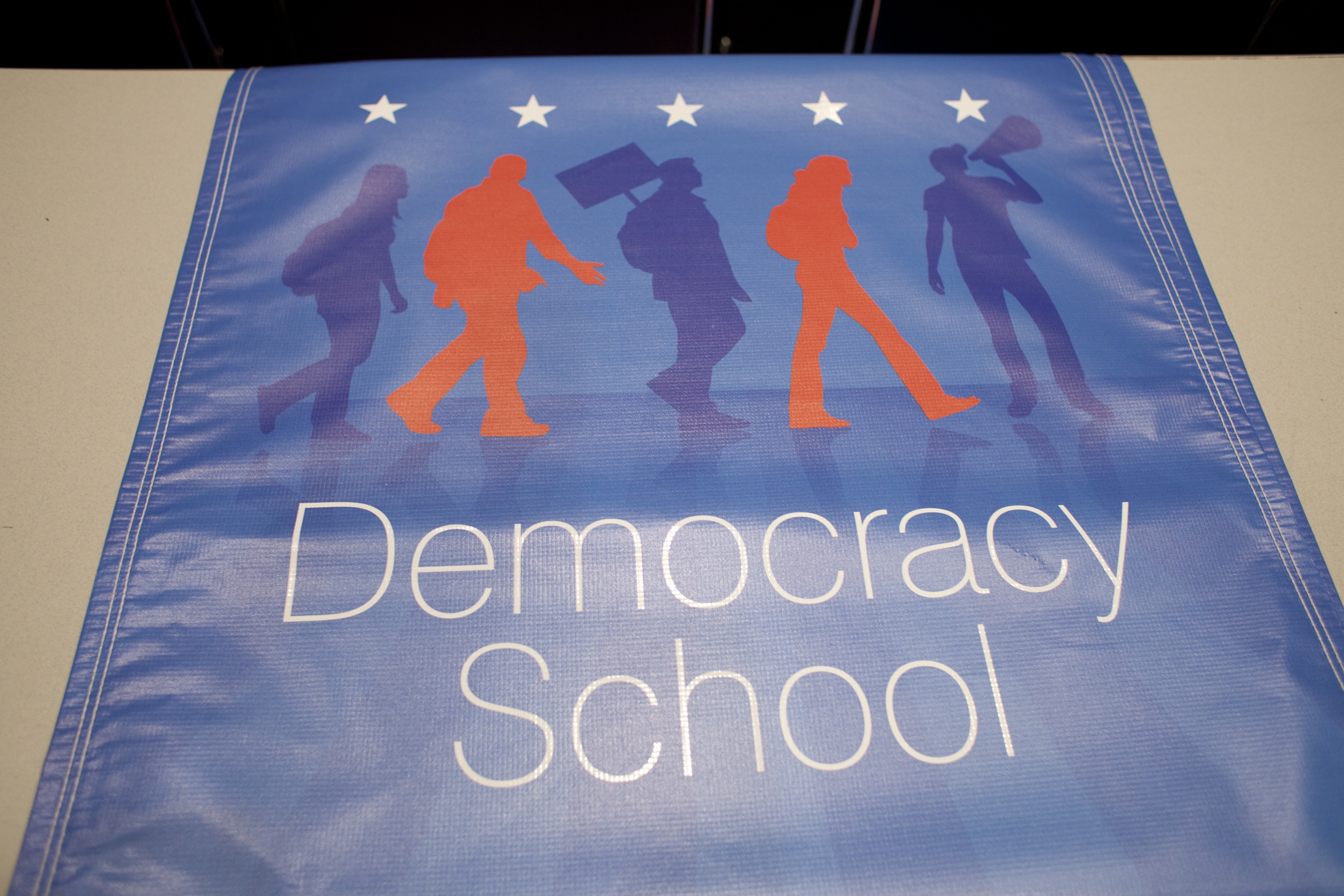Of Teachers' Unions, Democracy, & 'Civic Mondays'
Leo Casey of the Albert Shanker Institute writes to Deborah Meier on the Bridging Differences blog again today.
Deb:
One of the more promising developments on the American political landscape is the "Moral Monday" movement that emerged out of North Carolina. The idea behind the movement is a simple one: The ideals of social justice we profess in our houses of worship on Saturday and Sunday must become the foundation of our lives as citizens on Monday. In this stance one hears the echoes of the powerful civil rights movement tradition, which understands American democracy not as a completed "fact," but as the product of ongoing work and struggle.
The Moral Monday movement came to mind in reading your words this week. Democracy is our national civic faith—virtually every American professes allegiance to it. But practicing democracy is a different matter. We are a nation in need of a "Civic Monday" movement. And education needs such a movement as much as any part of American society.
Take the complaint that "politics" has intruded on "education." While no one would deny that there are times when education is exploited for narrow partisan advantage, this objection is most often aimed at an educational policy deemed objectionable. Underlying it is the view, widely held among members of the power elite, that one should not have to convince one's fellow citizens of the value of their educational agenda. Somehow my educational ideas are so obviously correct, so beyond question, that I need not engage in democratic deliberation with others holding different views. This has been the impulse, I would argue, behind mayoral control: It was a means for imposing educational policies, such as mass school closures and intensified testing, that were deeply unpopular and could not have been adopted with a more inclusive and democratic decisionmaking process. The defense of centralizing education power in the hands of one individual was that the mayor was elected, and so was accountable to the people for his policies. But note how power elite support for mayoral control has suddenly waned, now that the electorates in cities such as New York City and Newark, N.J., have elected mayors with mandates to reverse these unpopular educational policies.
In a vital book on education, race, and American democracy, Danielle Allen makes a powerful case that the heart of democracy is the capacity to "talk to strangers," to hold a dialogue, to reason, and to deliberate with one's fellow citizens in a context of civic trust. Disagreements over policy are an unavoidable fact of life in a free, pluralist society that contains many different communities of Of Teachers' Unions, Democracy, & 'Civic Mondays' - Bridging Differences - Education Week:

